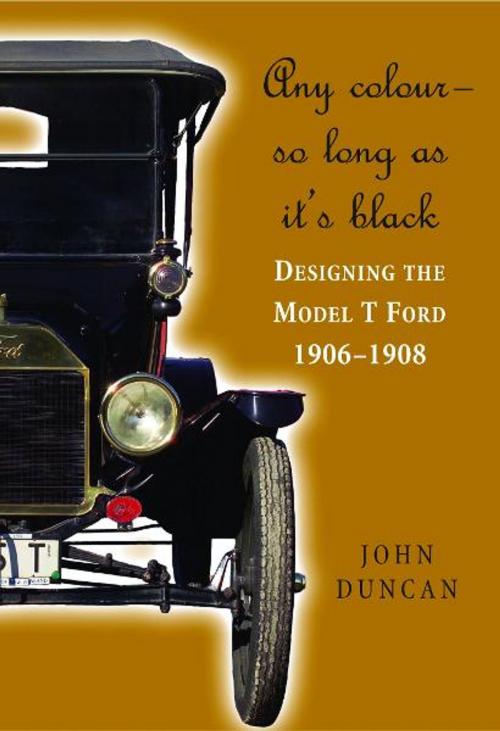Any Colour - So Long As It's Black
Designing the Model T Ford 1906-1908
Nonfiction, Science & Nature, Technology, Engineering, Automotive, Reference & Language, Transportation| Author: | John Duncan | ISBN: | 9781927147542 |
| Publisher: | Exisle Publishing | Publication: | March 1, 2008 |
| Imprint: | Exisle Publishing | Language: | English |
| Author: | John Duncan |
| ISBN: | 9781927147542 |
| Publisher: | Exisle Publishing |
| Publication: | March 1, 2008 |
| Imprint: | Exisle Publishing |
| Language: | English |
Henry Fords design of the Model T automobile between 1906 and 1908 was an extraordinary achievement. The industry was, at the time, still in an experimental phase and yet this design lasted without major change for nearly two decades. More than 15 million Model Ts were built: performance and price gave the car an edge. In this sense they were popular, yet owners were apologetic about owning one. Mr Ford had the audacity to provide the car people needed, not the car they wanted.The reasons for the cars success can be found in the details of the mechanical design. There is a vast technical literature available for the expert or the enthusiast and there are 20,000 Model Ts still on the road. This book provides a concise and fresh look at the design one hundred years later. It is not an engineering treatise or an owners manual; the aim is to get inside the mind of Henry Ford and to explain the design features that accounted for the cars success and to do so in a way that will appeal to anyone who would like to know why it has generated so much enthusiasm. The story is as much about people as it is about nuts and bolts. The character of the engineer and his design are interwoven to a surprising degree, and the singular personality of Mr Ford is shown to be reflected in his car.
Henry Fords design of the Model T automobile between 1906 and 1908 was an extraordinary achievement. The industry was, at the time, still in an experimental phase and yet this design lasted without major change for nearly two decades. More than 15 million Model Ts were built: performance and price gave the car an edge. In this sense they were popular, yet owners were apologetic about owning one. Mr Ford had the audacity to provide the car people needed, not the car they wanted.The reasons for the cars success can be found in the details of the mechanical design. There is a vast technical literature available for the expert or the enthusiast and there are 20,000 Model Ts still on the road. This book provides a concise and fresh look at the design one hundred years later. It is not an engineering treatise or an owners manual; the aim is to get inside the mind of Henry Ford and to explain the design features that accounted for the cars success and to do so in a way that will appeal to anyone who would like to know why it has generated so much enthusiasm. The story is as much about people as it is about nuts and bolts. The character of the engineer and his design are interwoven to a surprising degree, and the singular personality of Mr Ford is shown to be reflected in his car.















